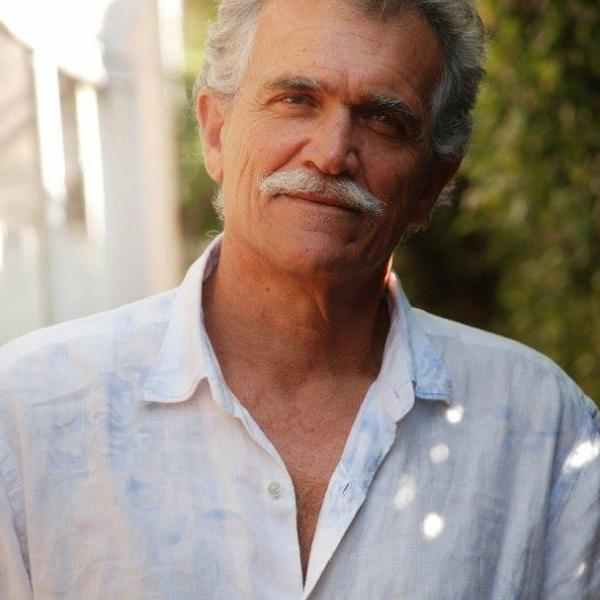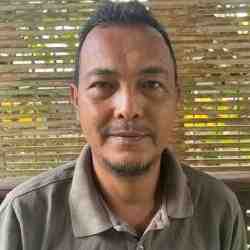Introdução
Jose Antonio Bacchin, an environmentalist and specialist in community based economic development, is developing income generation projects for rural communities situated in state park forests. The program reconciles local community needs with protection of the environment. He calls his program Caminhancas (Pathways).
A nova ideia
Increasing global awareness of the importance of protecting disappearing rain forest remnants has led the Brazilian government to grant park status to several areas in the Mata Atlantica, Brazil's coastal rain forest. While the granting of this status serves to protect the land, small communities that have for centuries lived off those lands are now at an economic loss.
To protect the people and their culture, and to prevent their becoming hostile to the parks, Jose Antonio is introducing Brazil to ecotourism and recreation on a serious scale. He has already begun training the local communities to establish food services, lodging, and guide services for the growing number of people who he hopes will visit the Mata Atlantica.
Jose Antonio knows that there must be a very rapid and significant increase in the number of ecotourists if there is to be any significant help for the local economy. He also knows that the wrong sort of tourist trade, even with legal park protection, will ultimately destroy both the environment and the sort of ecotourism he is trying to build. Consequently, his energy for the next half decade must be devoted to creating both the right sort of facilities in and around the parks (for example, trails and guides familiar with the trails and local culture) and a rapidly rising flow of the right sort of visitors (for example, older people and students interested in nature.)
If he can create a critical mass of both facilities and visitors, he will be creating something new and important for Brazil. If he can make enough local voters value the parks, the parks will survive. More important in the long run, if he helps conjure up a significant group of Brazilians who use the country's wild places for environmentally compatible recreation, he may be laying the foundations for a truly powerful mass based environmental movement in the future. Each such hiker or fisherman will leave a piece of his or her heart in the forest, and sooner or later they will come together to protect what they love. (America's powerful mass membership groups, Sierra Club, Audubon Society, and National Wildlife Federation, all have their roots in this sort of parkland recreational activity.)
O problema
Thanks to the efforts of environmental groups, portions of what remains of the Mata Atlantica, a unique region of Brazil that runs parallel to the coast, have become protected parklands.
This, however, has hurt the local people who no longer live on the fruits of the forest and of the earth. Having lost their economic base, many may have to leave the region they and their families have occupied for centuries. Their prospects in Sao Paulo or Rio de Janeiro, their most likely recourse, are not promising: raised as farmers, they have little of the educational and occupational skills necessary for success in the city. Not surprisingly, these local communities are becoming less and less enthusiastic about the parks as these implications become progressively more apparent.
A estratégia
There is an escape from this seemingly no win situation: Jose Antonio's ecotourism idea. It would give residents new, legal--and local--jobs that are respectful to the environment and within the new regulations governing the Mata Atlantica's status as a state park.
Working alongside community leaders, Jose Antonio and his team will develop training modules for local residents interested in working as tour guides. He will also develop workshops on how to establish, operate, and market restaurant and hotel services. As these services come into being and grow, Jose Antonio will organize tours and excursions that will match the new breed of "environmental tourists" with the newly developed infrastructure offered by the local residents.
Jose Antonio's effectiveness in working with the residents comes from both his knowledge of the area and his long experience with the community action approach to local development. Although he is very much the long term strategist, he makes sure that the thinking is done by the residents. He helps them see and analyze the problem; then they think it through and the programs that emerge reflect their values, realities, and priorities. In fact, while he was beginning to map local trails, he not only listened to the residents' troubles, but saw their entrepreneurship creating the first food and lodging small businesses in response to the opportunity presented by the first few tourists.
A pessoa
Jose Antonio has a long history of community development work. As an executive for SESC, a national, para governmental organization that develops supportive programs for employees of commerce, Jose Antonio worked both in the city of Sao Paulo as well as in small cities and towns in the interior of the state, designing recreational and cultural programs for salespeople and their families. He was awarded several prizes and bonuses for the brilliance that marked his career, including a scholarship for the M.B.A. program at the University of Lausanne. In the process of a highly successful executive career, Jose Antonio began questioning his lifestyle, becoming increasingly involved in nature through walking tours that he took up as a hobby.
Ten years ago, Jose Antonio "dropped out" of his executive career. He went to the University of Sao Paulo and earned a master's in physical education. He worked in the rural areas of Sao Paulo State on community-based economic development, mastering popular education techniques and the community action approach in the process.
He has taught extensively in a variety of settings (rural schools, in the university, and through the government's job training program) and in a variety of areas--from Portuguese to physical education to tourism.
Over the last several years he has become increasingly engaged in his vision of a virtuous cycle of environmental preservation and complementary economic development in the Mata Atlantica areas supported by and feeding environmental awareness and enrichment for city dwellers.




